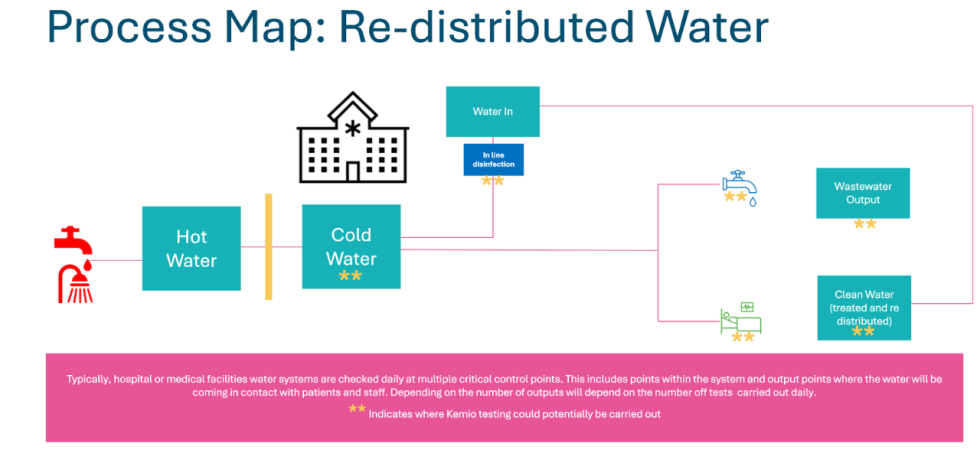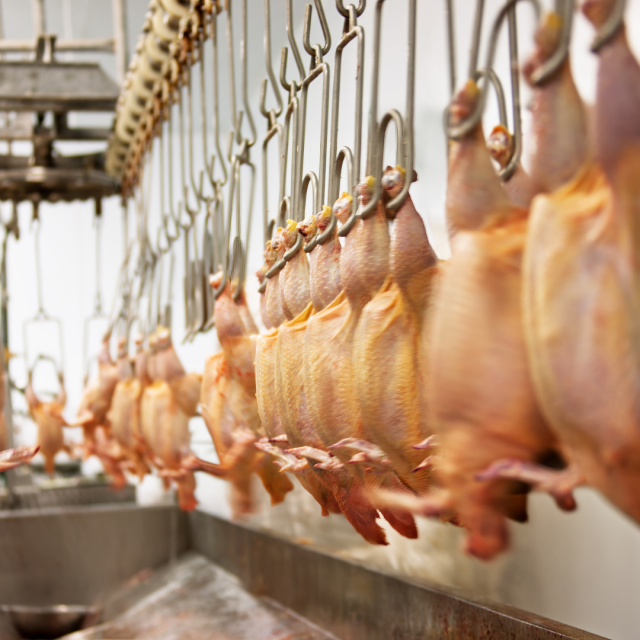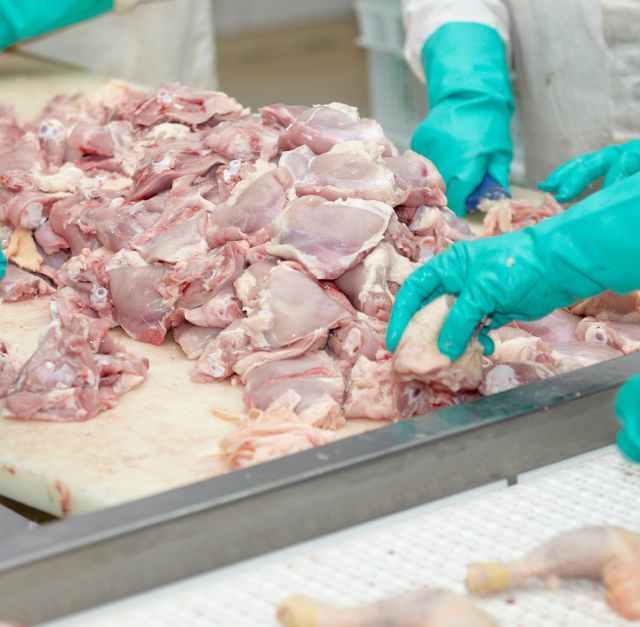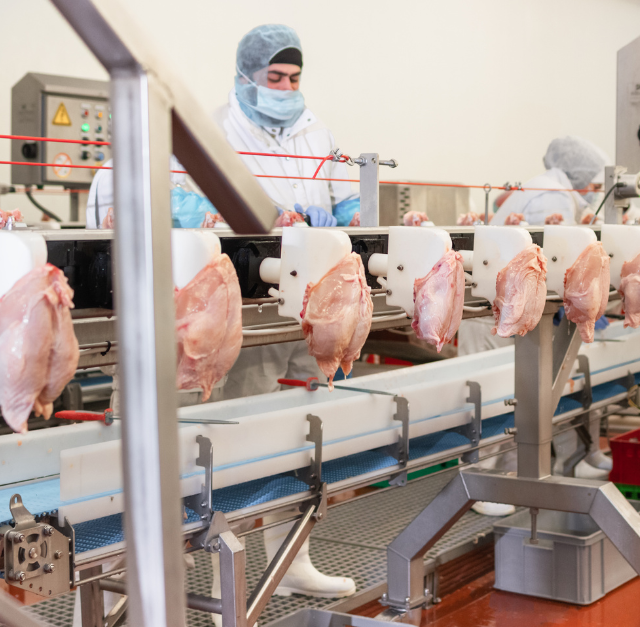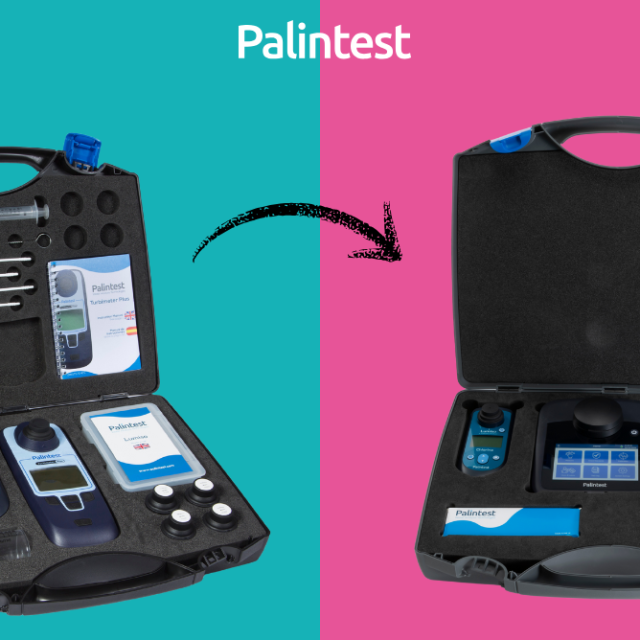
Application and Parameters
The re-distribution of water is typically seen in large scale public buildings such as hospitals and medical care facilities. These buildings use disinfection parameters to help control legionella growth. Distributed water can then be used for medical care and drinking water applications.
Hospitals often install secondary disinfection systems, to ensure distributed water is correctly dosed. To ensure accuracy multiple water samples from a wide range of points within the system are checked and tested.
During the re-distribution of water for drinking and medical use it is important that the system uses disinfection to control microbiological growth including legionella. Typical disinfection parameters used include:
Production Process and Need for Testing
Typically, hospital or medical facilities water systems are checked daily at multiple critical control points. This includes points within the system and output points where the water will be in contact with patients and staff. Depending on the number of outputs will depend on the number off tests carried out daily.
Regular testing of redistributed water in hospitals is critically important to ensure that chlorine dioxide levels remain within safe and effective ranges strong enough to eliminate harmful pathogens like Legionella, yet safe for patient and staff exposure. Without consistent testing, there is a significant risk of under-dosing, which can allow dangerous bacteria to proliferate in the water system, or over-dosing, which can lead to chemical exposure risks and infrastructure damage. Failure to test not only jeopardises patient safety but also increases the likelihood of regulatory non-compliance, costly outbreaks, and reputational harm.
Solution: Kemio Disinfection
Kemio Disinfection is a next-generation digital testing platform designed to verify disinfectant levels quickly, accurately, and reliably. Kemio offers a smarter, more reliable alternative to traditional disinfection testing methods like colorimetric kits or test strips, which are often prone to human error, subjective interpretation, and interference from sample conditions. It delivers accuracy, simplicity and durability empowering food safety teams to act with confidence and efficiency.
Accuracy: Advanced electrochemical sensing provides precise, repeatable results—unaffected by water color, turbidity, or particulates.
Simplicity: Intuitive digital interface with step-by-step guidance and clear pass/fail results reduces training time and minimizes user error.
Durability: Rugged, IP67-rated waterproof design ensures reliable performance in demanding food production and field environments.
How Does Kemio Support Re-distributed Water Treatment?
Protecting Public Health: Public building such as hospitals serve vulnerable populations, who are highly susceptible to waterborne pathogens. Regular testing ensures safe, clean water for drinking bathing, wound care, and medical equipment sterilisation.
Regulatory Compliance: Regular testing meets quality control standards for water safety in health care settings and avoids legal and financial penalties from non-compliance or outbreaks.
Cost Control and Longevity: Proactive testing reduces emergency callouts, downtime, and waterborne incident investigations supporting predictive maintenance strategies, optimising operational budgets.
Sign up for our newsletter
Please add your details below to receive our monthly newsletter and latest offers.


